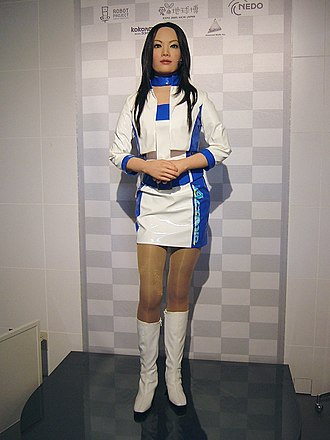
Courtesy of wikipedia.org
My branch bank was closing. The nearest location was three miles away. I don’t own a car so the distance was significant. Needing to learn how to make future deposits, I stopped by the office to learn about options.
The acting manager greeted me with a smile and waved me into her office as I entered. Except for the clerk at the reception desk, we were alone.
Sliding into the plastic chair she indicated, I noted her desktop was clear, except for a phone, and a computer, beside which sat a notepad and a glass jar crammed with multicolored pens. She splayed her fingers across the walnut surface as she sat opposite me, her eyes wide with anticipation. No doubt, I was a welcome distraction in an otherwise hum-drum day.
I noted she was young, barely a year or two beyond her teens with a smile that left no wrinkles at the corners of her upturned mouth. A distance of 70 years stretched between us, I guessed.
When I told her why I’d come, she looked relieved. “Check deposits? That’s easy.” She chirped out a couple of choices. With a debit card, I could make deposits at any ATM. Or, if I preferred, the app on my smartphone would perform the same magic.
She might as well have been speaking in Swahili. “I have neither a debit card nor a smartphone,” I explained. “What I want is a mailing address for my deposits”
The woman behind the desk took in a sharp breath as if I’d shoved a knife between her ribs. “Mail deposits? We don’t accept those.”
I frowned. She was speaking Swahili again. “Are you sure? Things can’t have changed that much. Could you check with the head office?”
A pair of youthful shoulders shrugged– a sign designed to discourage me. Nonetheless, the young woman picked up the phone and dialed a number. I held my breath while it rang. A brief exchange followed between the caller and a voice somewhere in the ether. At last, the woman seated opposite me hung up, turning a pair of owlish eyes in my direction.
“ I had no idea we did mail deposits No one’s ever asked.” She tore a page from her notepad and wrote down a P. O Box number which she handed to me.
Leaving the office with a light step, I was glad I had persevered. Even so, I sensed a pair of blue eyes at my back as I exited. No doubt the twenty-something person I’d left behind thought I was a relic that needed to be stored in a box in the bowels of the Smithsonian.
She might be right. Time is a tricky thing. In the everyday world, it moves at the speed of light in a single direction. But time in the human brain is flexible. My thoughts can take me backward and forward in history. The same is true for my young banker. The difference between us is that she lives in the violet spectrum of now, while I and my memories have decayed into the red zone. We are creatures of the same universe, yet she and I exist in dissimilar energy fields.
The laws of physics decree that when different fields can be described by the same mathematical structure, rapid advancement of knowledge takes place in which the two fields cross-fertilize. So it was with the young woman and me that afternoon. I saw her as limited in knowledge. She, no doubt, saw me as obsolete. Even so, by the time we parted from one another, we were both wiser.
Youth and age are frequently out of tune with each other, the way classical physics and the quantum world appear to conflict. Call it an atonal harmony, the kind the gravitational force field makes when it suffers a disruption and sets the universe to humming. I think of that humming as the music of a higher order.
If humans were to penetrate the deepest secrets of that harmony, where would they take us? We saw the effects of harnessing nuclear power. It ended World War II and gave us clean energy. But it also helped to deplete the ozone layer, raise global temperatures, and hasten the effects of global warming.
The mind is a terrible thing to waste, yet curiosity comes with a price. We embrace Neurotech devices that measure metabolic functions to retain good health, but surveillance capitalism, like nuclear energy, has a downside. At any time, our private information can be made public.
China, for example, requires some workers to wear EEG sensors to monitor their productivity and emotional states. Can we be sure the demand for brain transparency won’t one day deny us the right to private thoughts?
Advances in Artificial Intelligence (AI) have led some theorists to speculate that one-day homeo sapiens might become obsolete. Bionics are already widely accepted. Pacemakers are common as are artificial joints, cochlear implants, and intraocular lenses.
This evolution has come softly on cat paws and with each progression we blur the line between robots and humans. My young banker knew nothing about mail deposits, having no historical memory. In the future, will it be the same with our acceptance of robot technology? And should AI become sentient how will we view our creation? With fear? Or, in our quest for eternal life, will we download our memories into an avatar?
Should we choose to merge with robots, will we still be human? What will become of our unconscious minds? Will we dream?
